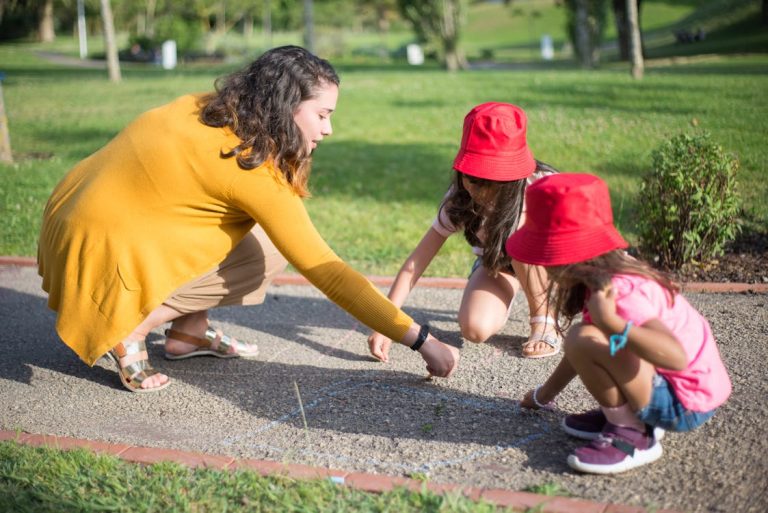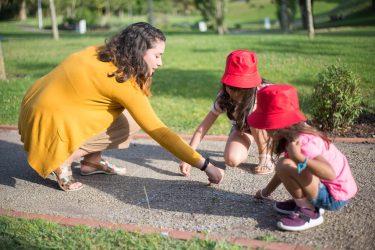Outside of being an English teacher, there are other career starters to use your skills for others and to get you on the path of language learning. Within Little Hug, becoming an English Babysitter is a great alternative from teaching in a classroom to the comfort of a child’s environment.
People tend to underestimate that being a babysitter can really impact someone’s learning and the way they see people from different countries. An English babysitter is quite similar to a nanny or a child minder but at Little Hug, there’s a big focus on a more at ease and playful approach with the children and communicating only in English.
As someone who worked at Little Hug for multiple families across the Tokyo and Kanagawa prefectures, I can give an insight of what the recruitment process is like, expectations of the job and my personal experience, this will better help you understand why choosing to become an English babysitter at Little Hug Babysitters is a considerable career to utilizing your language skills and be your first job when you move to Japan!
Introductions and Training
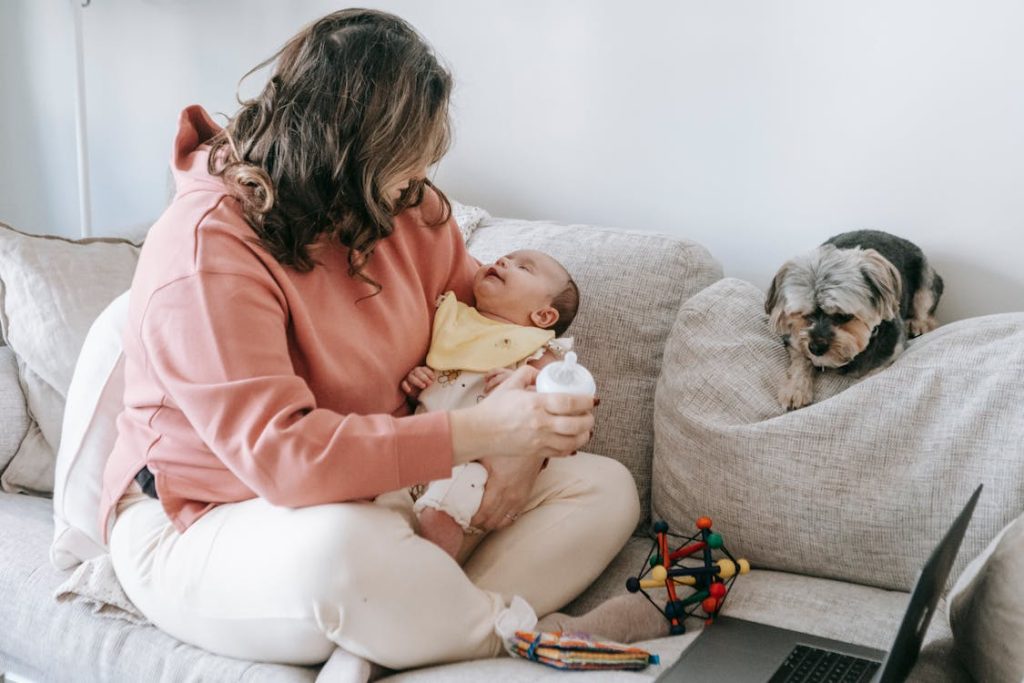 Prior to Little Hug, I worked part-time with two children under 4 in the UK which really helped by giving me the experience required for looking after children in Japan. During my interview, I was informed more about what the company’s mission was; providing families with warm-hearted childcare service from experienced and selected babysitters in Tokyo, Kanagawa, Saitama, Chiba and Kansai area (Osaka, Kyoto, Hyogo and Nara prefectures).
Prior to Little Hug, I worked part-time with two children under 4 in the UK which really helped by giving me the experience required for looking after children in Japan. During my interview, I was informed more about what the company’s mission was; providing families with warm-hearted childcare service from experienced and selected babysitters in Tokyo, Kanagawa, Saitama, Chiba and Kansai area (Osaka, Kyoto, Hyogo and Nara prefectures).
The role involves babysitting Japanese born kids and speaking to them in English 100% of the time to meet the expectations of the parents. The services provided by an English babysitter consist of a drop-off/pick-up, feeding them snacks and/or meals, housekeeping (optional), and their interaction with you in English.
A well-crafted training session plan is ensured to teach you what you will do for your role. This includes:
- Holding a baby
- Reading a picture book
- Changing clothes and a diaper
- Bottle feeding and bathing (with a doll)
- Playing with a baby
You’ll be given an explanation of the workflow along with getting an apron and taking a photo for your profile, so dress accordingly.
My trial was with a child who was very energetic and listened intently when I read a book, sang “Baa Baa Black Sheep” and changed his nappy. It gave me a good introduction to what was to come, however remember that most children react differently to other people without their parents’ presence, so it was something to factor into in the coming months.
Beforehand, the Little Hug team will send you an email with client information of the family that will give you the following details:
- The address, date and time to meet the client
- Guardian and child’s name with their age (e.g S-chan, 3 year old baby boy)
- Nearest station to their house (with the quickest route sent. If required and not covered by IC Card, there may be a need to buy a ticket for reimbursement fees)
- Client requests (Dietary or allergy information, their progress with the language so far, emphasis of using more vocabulary/grammar etc)
- Special cautions (Child’s health condition, or even a parent’s English skills to communicate with you)
- Attachments (finding the apartment block if it’s complicated, sleeping habits of the child and daily schedule)
It’s best to read this carefully before you start and memorise as much as possible as the parents pay special attention to you and your skills. What’s great about working at Little Hug is that you are not alone in learning more and can reach out to the Little Hug staff for any questions you may have. If you’re unsure about the email you receive, home customs or mannerisms in Japan, they are able to help during training and also before meeting each family on what to do or say.
Adapting and Learning
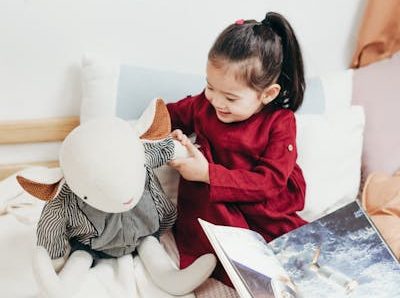 Understanding how the children can warm up to you is an important factor. It does take time, even up to a few weeks but adjusting to their daily life (e.g. when they eat, need to sleep, extra-curricular activities) will be beneficial in the long run. Let me tell you of my experiences as an example.
Understanding how the children can warm up to you is an important factor. It does take time, even up to a few weeks but adjusting to their daily life (e.g. when they eat, need to sleep, extra-curricular activities) will be beneficial in the long run. Let me tell you of my experiences as an example.
During my time, I looked after 7 children from various families who at the time, resided in the central of Tokyo area, in addition I also provided temporary babysitting for children in the Kanagawa, Saitama areas. They all had various personalities and were intrigued by me and adapted quickly to how I taught them British English.
Knowing what the child likes and how to get their attention from you is very important. From the children that I regularly looked after, this is what I picked up over time:
- In the Tokyo area, the child had a big imagination, was very organised and loved making her own songs in English and Japanese. She also loved drawing pictures and putting colours in order. Because of that, she knew how to name all the colours in the rainbow and count from 1 to 10. The child was great at switching from Japanese to English and could say the words “please,” “hi,” “bye,” “sit down,” “stand up,” “turn around,” “see you,” “let’s go,” “up” and “books.”
- In the Tokyo area, the child was very cheeky but funny, independent and loved helping out, especially when pretending to cook and building with colourful blocks. She could understand 90% English as her parents were fluent, and would often say “yes,” “no,” “left,” “right,” “please” and “thank you.” The child loved apple juice and strawberry milk as a treat as well as Anpanman, Mell-chan and Hello Kitty but it was always important to speak in a mix of English and Japanese as she wasn’t so confident in speaking completely in English.
- In the Tokyo area, the child was the youngest at 9 months old and loved Anpanman. Overtime, she learnt to say “head,” “nose,” “up” and “stretch.” One thing I noticed while looking after her was that most children in Japan want to explore and do things they are not used to, and The child loved to draw with a pencil and paper. She also had a big imagination and loved reading and pretending to cook saying “Dozo” when feeding you pretend food.
- In the Kawasaki area, the children were a fun bunch of siblings who had different interests but played well together . The oldest child was creative, loved making big sets out of Lego and drawing animals such as unicorns and lions. The youngest child was more playful and loved creating scenarios with his transportation vehicles, the police car was his favourite. They were both able to introduce themselves in English and say “Nice to meet you” “beautiful”, “cool” and “lovely.”
- In the Tokyo area, the child was very vocal and understood 75% English when listening to conversations around him. He enjoyed singing and copying the actions of “ABC,” “If you’re happy and you know it” and “Twinkle Twinkle Little Star.” With confidence, he picked up various words such as “no,” “please,” “push,” “why,” “bye,” “hello,” “car,” “night night” and “lion.” The child also enjoyed watching Shimajiro videos, playing with his transportation vehicles and frequently reading books about animals.
- In the Tokyo area, the child was an energetic child who loved to copy. Everything she’d watch me do, she would want to copy e.g. creating towers out of blocks or looking in the mirror. She was also multilingual so would frequently mix English with her two other languages and repeat words such as “Please”, “up and down,” “no” or “touch.” The child would enjoy singing songs like “Twinkle Twinkle Little Star” and “Head, Shoulders, Knees and Toes.”
My advice would be to see what the child’s favourite toys or books are and encourage them to show you how they play with them or read stories to you. As they need time to warm up to you, it’s important to understand their patterns and how to slot yourself into their time. Afterwards, saying and repeating words to the children you’re looking after will slowly help them adapt to using English in their daily life.
Overtime, the families became more at ease with me and were happy to answer any questions I had about their home life and family structure, as long as the child is improving in their English abilities and trusts you.
Family Culture in Japan
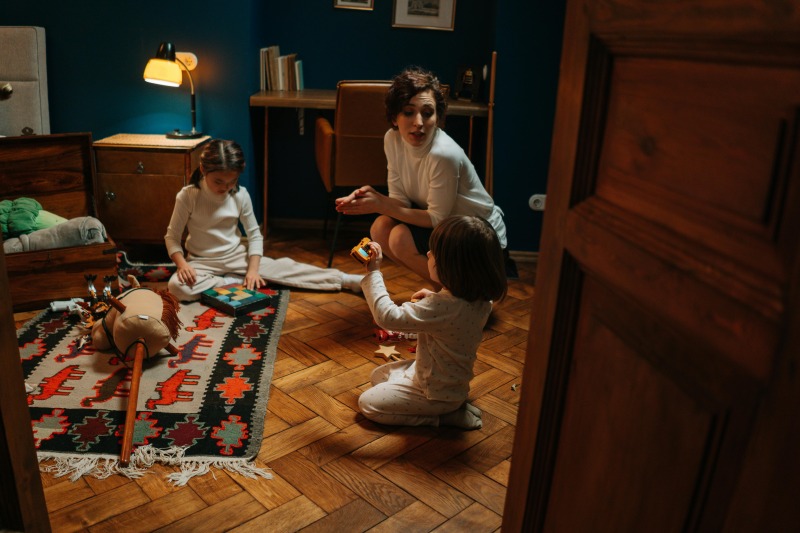 On the topic of home life, moving to Japan outside of what you’ve learnt or heard is a great way to understand more about the culture and customs in the country. At Little Hug, working for these families and getting to know them is a great way to learn more about family culture in Japan.
On the topic of home life, moving to Japan outside of what you’ve learnt or heard is a great way to understand more about the culture and customs in the country. At Little Hug, working for these families and getting to know them is a great way to learn more about family culture in Japan.
You’re being invited into their houses, learning their rules and showing respect, as well as being entrusted with taking care of their children. Some of the parents will make you feel at home and ask you questions about your hometown.
A few things I learnt about family culture from talking to the parents was:
- Washing your hands before doing anything is a must.
- Most parents don’t let their children watch TV or streaming services on a device until they are in primary school.
- Children spend their first year mostly in the house with one of their parents (usually the mother) with a few trips to the nursery a month.
- Many parents don’t get their children’s ears pierced young, but wait until they are an adult (20 years old).
- Some households have modern bathtubs with built-in heating systems that have a control panel to keep the water warm, which is perfect for families.
- Ovens aren’t common in Japan, therefore most households will use microwave ovens as they have more multi-purpose uses for families who want to cook quick meals.
- Puzzle foam floor mats are used for children up to 2 years old along with gates to prohibit them from entering particular rooms of the house.
- Some children sleep with their parents in the same bed when young.
Thriving Early with English
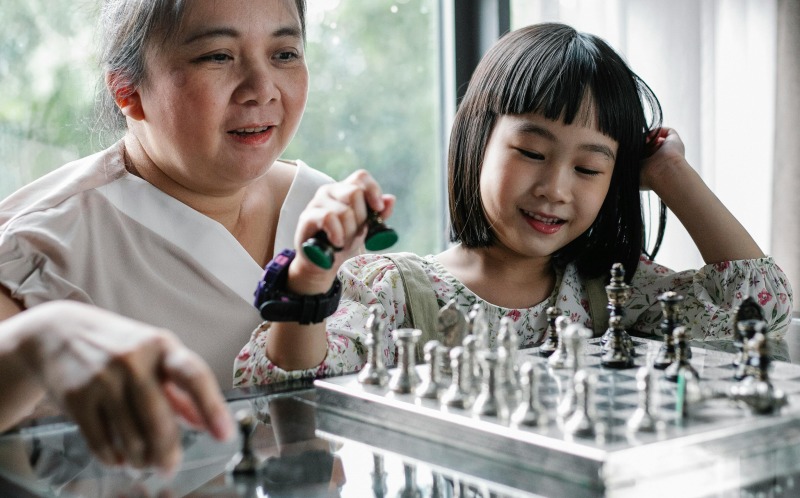 At Little Hug, becoming an English Babysitter allows one to teach children English in a fun and informal way and in turn, you also become a big part of the child’s life, like an older sibling from another country.
At Little Hug, becoming an English Babysitter allows one to teach children English in a fun and informal way and in turn, you also become a big part of the child’s life, like an older sibling from another country.
What starts out as a simple role grows into their starting journey to learn and grow confident in speaking English. There’s also a lot of benefits that helps a child start to become bilingual such as:
- Further gaining an interest in other countries and culture
- Code-switching with ease and confidence
- Introducing the child to local resources (e.g. books, games and toys)
When you leave to go home after spending so much time with them, the child will likely miss you and your presence will be felt in their lives forever.
After working at Little Hug, it was a pleasure to be these kids’ first exposure to speaking English and for the parents, being around a non-Japanese native like myself to give them more help in language learning for their child. To see how much both children improved and spoke confidently in English thanks to my guidance, was wonderful to see.
The impact that you have in a child’s life at Little Hug will be felt for years to come especially in their memories.
Employee Perks
So what’s in it for you? Little Hug provides a lot of convenience, flexibility and a good starting salary.
- If you’re studying, doing a working holiday or want to work part-time, this job is really good. You’re likely to work at least 3 hours per client depending on their request.
- Language-wise, do not worry! Some parents are bilingual or have a big interest in speaking English so if you have little to no Japanese language skills, this is not a big problem. Most of the parents want to hear English around themselves and their child. However, it’s good to speak at least conversational Japanese especially when speaking to older children or a parent who may need to explain a word or two. Depending on your language skills, you could be paired with a child whose family has a big or small exposure to English so take notice of this.
- Salary-wise, this will vary depending on where you live and how many children you look after on a weekly basis. On top of this, most Japanese companies pay transportation costs along with the salary and Little Hug is one of them!
- If you are ever sick or need a holiday, you can speak to the coordinators who will help you in informing the family, as long as there is advanced notice.
If you have any questions regarding the process and want to know more, please check the recruitment page For any further enquiries, please contact the Little Hug team here.

